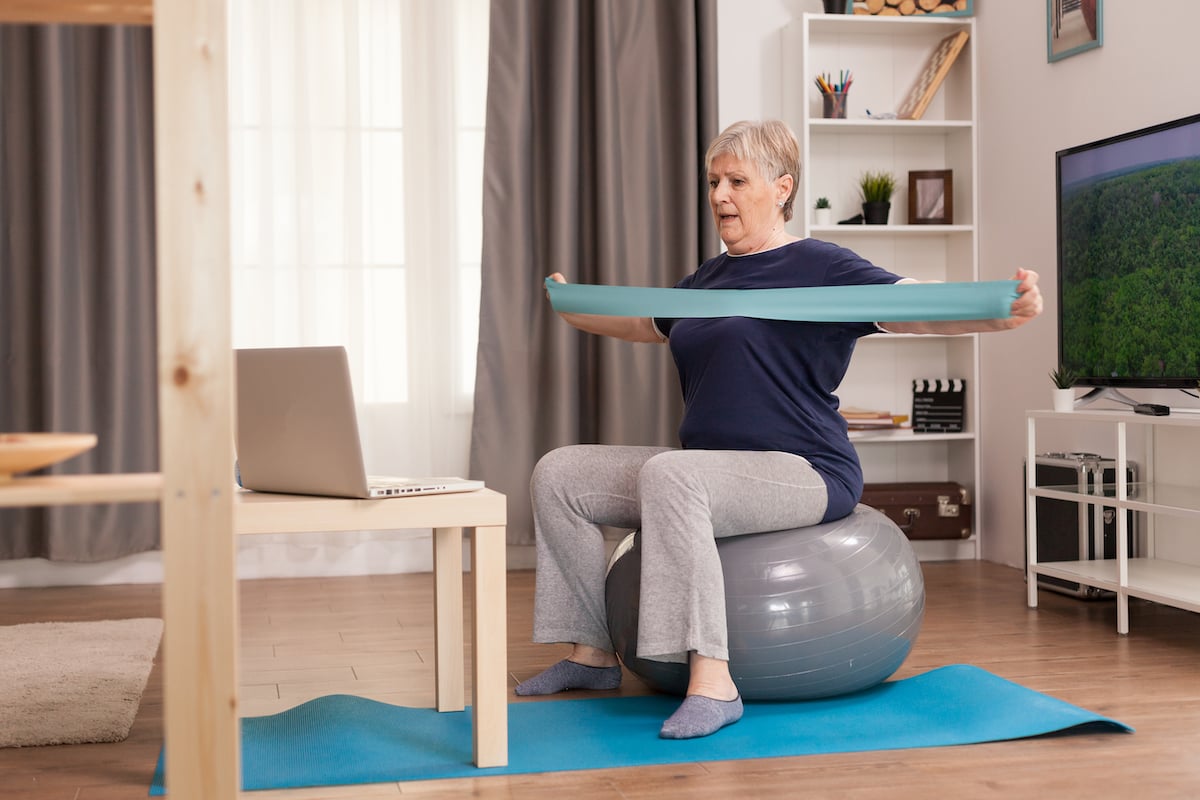
The involuntary action of breathing is often taken for granted, along with the health of our lungs. We do not think about lung health as much as we do the other parts of leading a healthy, active lifestyle, but this part of the body plays a vital role in our health.
By the time we reach age 25, our lungs have reached maturity, and after age 35, our lung functioning gradually declines as we grow older. The way that our bodies change as we age directly affects how it functions. This includes our lungs. Age-related changes that impact lung health include:
- A weakened diaphragm, making it harder to inhale and exhale
- Less sensitivity to foreign particles, allowing these particles to sit in the lungs and cause damage instead of being coughed out
- Thinner and altered bone structure in the rib cage, making it more difficult for the lungs to expand and contract
- Changes to the shape of alveoli which can impact their functionality; these tiny air sacs found in the lungs are responsible for the exchange of oxygen and carbon dioxide
We aim to promote independence and an active lifestyle for our community members, so Origin Active Lifestyle Communities understands the important role the lungs play in our daily lives. This is why we are sharing tips on how to improve and maintain your lung health.
Avoid Exposure to Pollution
Both indoor and outdoor exposure to pollution can negatively impact your lung health. As we age, the pollutants we are exposed to can be more difficult for our lungs to clear out. Additionally, these pollutants can build up more easily and cause the lungs to lose their functioning at a quicker rate.
To combat this, avoid going outside on days when the air quality is unhealthy. Avoid indoor exposure to pollution by dusting and vacuuming regularly and using all-natural cleaning products whenever possible.
Prevent Infection and Illness
A cold or mild infection may not seem like a big deal, but these illnesses can progress and become a much more serious condition. Aging individuals are especially susceptible to respiratory illnesses, such as pneumonia.
Keep your immune system strong, wash your hands often, practice other good hygiene recommendations, and avoid being around large groups of people during cold and flu season.
Practice Breathing Exercises
Breathing exercises are not only a good way to strengthen your lungs, but they also help you to check in on how your lungs are functioning. When you practice deep breathing exercises, you target the specific muscles of the respiratory system and increase your lung capacity.
Furthermore, when you are doing breathing exercises, you are focused on your lungs, a part of the body that is often overlooked. By focusing your attention on your lungs, you can better notice any changes in how breathing deeply feels or how far and long you can breathe in and out.
Be consistent and spend a few minutes each day exercising your lungs through something as simple as breathing.
Utilize Aerobic Exercise
Aerobic exercise, meaning “with oxygen,” makes your heart and lungs work harder to get more oxygen to all of your working muscles. This form of exercise causes your breathing to “increase from about 15 times a minute (12 litres of air) when you are resting, up to about 40-60 times a minute (100 litres of air) during exercise.”
This increase in breathing strengthens your lungs and enables them to be more efficient, even during periods of rest. Talk to your doctor about the right level of aerobic exercise for you and what amount would be beneficial for your lung health and overall wellness.
At Origin Active Lifestyle Communities, we understand that taking care of your health and wellness is the best way to achieve the active lifestyle that you desire. Healthy lungs are an essential aspect of this process. Through the care services that we offer in our communities, we support individuals in their journey to leading a more independent, active lifestyle.
For more information on our services or active living communities, contact a member of our team or visit our website!





%20-%202025.png?width=500&height=300&name=Origin%20Way%20Blog%20-%20V%20Day%20(3)%20-%202025.png)